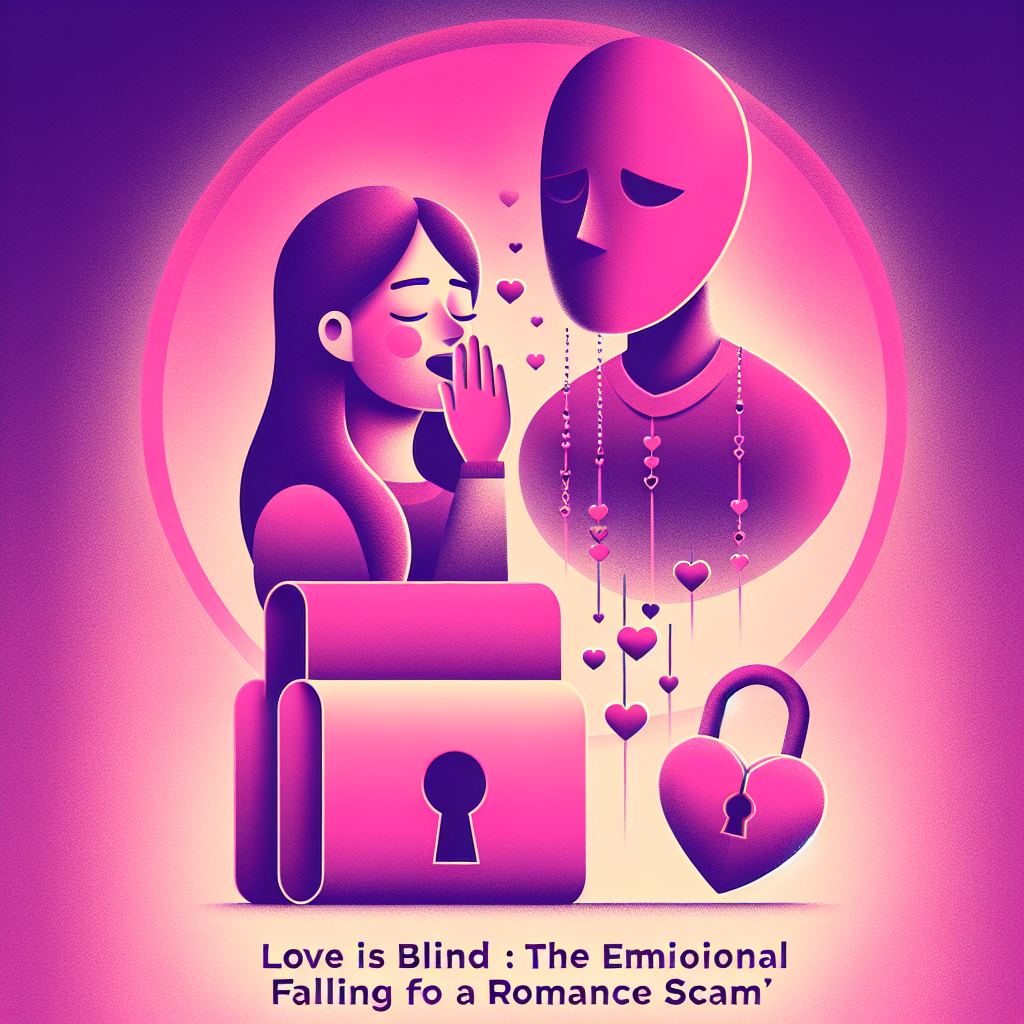Love is Blind: The Emotional Toll of Falling for a Romance Scam
In an era defined by digital connections and social media, falling in love is easier than ever. But with the rise of online dating, a darker trend has emerged: romance scams. These schemes target vulnerable individuals seeking companionship, often resulting in devastating emotional and financial losses. In this article, we’ll explore the world of romance scams, offering insights into their mechanics, signs to watch for, and ways to protect yourself. Whether you’re an avid online dater or a concerned family member, this guide is designed for anyone who wants to understand and combat this alarming issue.
Understanding Romance Scams
Romance scams involve con artists posing as potential romantic partners on dating apps, social media, or various online platforms. These scammers often create fake profiles using stolen images and disengaging stories designed to manipulate emotions. With an astonishing increase in reports to the Federal Trade Commission (FTC)—nearly 70% of romance scams are conducted through social media—you may wonder how to safeguard yourself against becoming a victim.
A Rising Concern
According to the FTC, Americans lost over $1.3 billion to fraud in 2021, with romance scams making up a significant portion of these losses. Scammers prey on the lonely and vulnerable, crafting elaborate stories to build trust and emotional connection before demanding money. This is not just a matter of financial loss; the emotional toll can be crushing, as victims often grapple with feelings of betrayal, guilt, and shame.
Signs of a Romance Scam
Identifying a romance scam can be challenging, especially when emotions are involved. However, certain red flags can help you discern genuine relationships from fraudulent ones:
1. Unrealistic Profiles
Scammers often use profiles that seem too good to be true. If someone appears overly attractive or claims to have an impressive job while living abroad, tread carefully. A lack of specific details about their life can also be a warning sign.
2. Rapid Attachment
Scammers often escalate relationships quickly, claiming to love you within days or weeks of communication. Genuine relationships typically develop over time; be wary of individuals trying to rush things.
3. Requests for Money
A classic tactic of romance scammers is to ask for money. They may fabricate stories about a medical emergency, travel expenses, or unexpected legal fees. If someone you’ve never met in person asks for financial assistance, it’s crucial to pause and assess the situation carefully.
4. Avoiding Meeting in Person
While initial conversations can happen online, if the person continuously deflects requests to meet in person or video chat, consider it a significant red flag. Most sincere partners will be eager to meet.
5. Inconsistent Information
Scammers often change their stories or provide inconsistent information about themselves. Pay attention to discrepancies in their narrative, including where they live, their backgrounds, or any personal anecdotes.
6. Emotional Manipulation
Scammers may use emotional or psychological manipulation to weaken your resolve. They might exploit your vulnerabilities or play on your sympathies, creating a sense of urgency to give them money.
The Impact of Romance Scams
The consequences of falling victim to a romance scam can be severe. Beyond financial loss, victims often endure emotional distress, resulting in anxiety, depression, or distrust of future relationships. Rebuilding one’s confidence and sense of security post-scam can take considerable time and effort.
Protecting Yourself
Now that you’re aware of the signs and risks, here are some strategies to protect yourself:
1. Research Online Profiles
Take the time to verify the person behind the profile. Reverse image search tools can help identify if someone is using stolen pictures. Run their name and details through search engines to find inconsistencies.
2. Take Your Time
Don’t rush into conversations or allow anyone to push you into sharing personal information. Genuine relationships take time to build, and there’s no need to hasten the process.
3. Communicate with Trusted Friends or Family
Discuss your online relationships with trusted friends or family members. Gaining an outside perspective may help identify potential red flags you might miss.
4. Beware of Requests for Money
Be very cautious if someone asks you for money, regardless of the story. It’s crucial to prioritize your financial security and well-being above all.
5. Know Where to Report Scams
Familiarize yourself with reporting mechanisms. If you suspect you’ve encountered a scam, report the profile to the platform’s administrators and file a complaint with the FTC or the Internet Crime Complaint Center (IC3).
Finding Support and Resources
If you or someone you know has fallen victim to a romance scam, it’s important to know that you’re not alone, and support is available. Consider reaching out to organizations aimed at preventing fraud and offering victim assistance. Additionally, you can find more comprehensive resources for understanding and combating romance scams by visiting Click Here to learn more.
Conclusion: Empowering Yourself Against Romance Scams
As online connectivity increases, so does the potential for deception. By being aware of the signs of romance scams, you can protect yourself and safeguard your emotional and financial well-being. Remember, it’s crucial to show patience in the world of online dating and nurture genuine connections that thrive on trust and authenticity. If you’re ever unsure, don’t hesitate to seek support or report suspicious behavior—you have the power to protect your heart and your wallet. Share this article with friends and loved ones to help spread awareness, and empowerment is the first step in combating romance scams.
With vigilance and education, we can all contribute to making the online dating space safer and more enjoyable for everyone.

